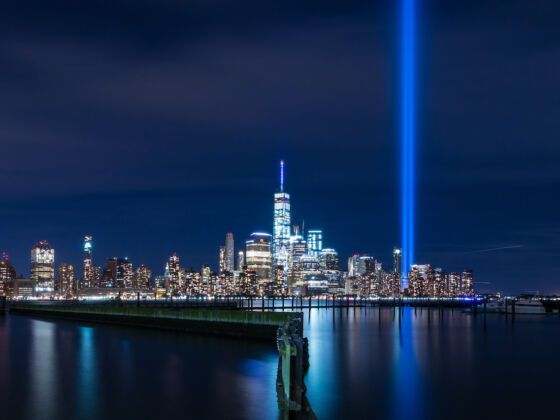IT’S WHAT WE notice that hurts afterward. This year I’ll wake up on September 11 and think, as I have for the past seven years: “The sky was just so blue.”
It was the thought that played in my head all day, a ridiculous refrain. As if perfect blue could ward off what was about to happen. Or as if it would dissipate completely afterward, the sinister plumes powerful enough to blot out blue as far as the eye could see.
